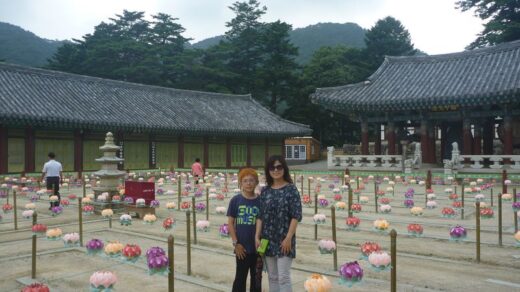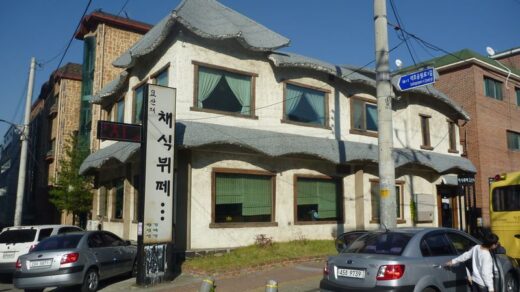 |
|
|
April 22, 2014 Edition 1) A ferry sunk, leaving hundreds of victims A ferry with 476 passengers from Inchon to Jeju Island capsized off the southern coast of Korean peninsula. The bodies of 64 people are recovered, and there are still 238 missing, presumed to be drowned. Most of the casualties were young students from Danwon High school in Ansan who were on a school trip to Jeju. They faithfully followed the “Stay put. Don’t move” order from the captain who later fled to be the first on the life boat to be rescued. Whole Korea is under somber mood, with no cheer leaders in baseball games, no comedy shows, no entertainment activities, and no anything that can make people laugh or smile, much like right after 9/11 in the U.S. The incident will be recorded as the third largest accident after Sampoong department store collapse in 1995 that left 502 people dead and Namyong boat sinking in 1970 that claimed 326 lives. My wife had run a piano school in Ansan for 6 years until 2006 when my family moved to Seoul. As the Danwon Highschool is only 2.5 miles away from the piano school, some of students might be my wife’s piano students when they were in elementary school. A reason for my wife’s praying much in church yesterday. 2) Only 0.07% women rise to the top in large companies According to market researcher CEO Score, one out of every 90 male employees in Korea’s top companies rises to an executive position, but the ratio for women is one in 1,430, or 0.07%. CEO Score looked at the executives in 93 listed companies. Except for four presidents in Hanjin Shipping, Lotte Shopping, Hotel Shilla, and Korea Air, who were born in the right family, there were no registered female board directors at all. Samsung Group had the largest female executives with 50, followed by LG Group with 11 and SK with 10. Hyundai Motor has only one female executive. There is still steel ceiling in Korean companies for women as much of the business practices depend on relationships formed through out of office activities in Korean business culture. You got to have guts to call your wife, saying “Honey, I will be late for home tonight as I am in a bar with my customer, Miss Lee.” 3) Victory for tobacco companies The Supreme Court ruled against a group of lung cancer patients who sued Korea Tobacco & Ginseng, claiming their smoking habit was the cause of the illness. The dispute dates back to 1999 when the plaintiffs filed for damage, alleging it used chemicals to enhance the addictive effects. Two lower courts had earlier thrown out the case, citing lack of evidence to support the correlation between lung cancer and smoking, while the other only acknowledged smoking may increase the chance of getting cancer. Too bad the smokers lost the case. Had they won, I would have sued Louis Vuitton as its fancy logo has enhanced my wife’s addictiveness for its products, leading to cancer in my wallet. 4) 20 million vehicles on the road in Korea According to the Ministry of Transportation, the number of registered vehicles is expected to surpass the 20 million milestones in the 2nd half of this year as there are 19.6 million registered as of March. The biggest reason for the increase is that the OEMs keep introducing new models to lure customers. Around 40 new models were unveiled in the Q1 of this year. Import sales also reached a record monthly high of over 15,000 in March. The sales of imported vehicles rose 29% in the Q1 of this year over the same period last year. The speed of motorization in Korea was very quick. I recall my family was the only household that owned a vehicle in my village of some 600 people near Gimpo Airport in 1989. Not at all that my family was rich. My father just made a living by transporting various goods in his small 2.5ton truck called Titan. With some 50 million people in South Korea now, it is one vehicle for every 2.5 people 5) Auto suppliers calls for solution on ordinary wage issue The Korea Auto Industries Cooperative Association (Kaica), the organization that represents Korea’s auto suppliers, and CEOs of auto parts manufacturers held a press conference to express their concerns over a move by lawmakers to revise the law on base salary calculation in favor of labor following recent Supreme Court ruling that regularly paid bonuses are to be regarded as part of the base salary. The decisions were big setback for the companies as base salary is used to calculate over time and retirement allowances. Kaica said the base salary problem will weaken business for Korean auto suppliers because they would not be able to maintain price competitiveness in the global market. I am finally in the same league as Hollywood stars as I was invited to attend the Kaica press conference that had representatives from 30 suppliers. Need a proof? Scan the picture above slowly, and you can find me right in the middle. Regards, H.S. |
|
| Questions or feedback? Email Steven S. Bammel, at sbammel@koreanconsulting.com. | |
Steven S. Bammel, PhD | Professional Korean-to-English Translator
Reliable, confidential, fast, and accurate | 20+ years of experience



